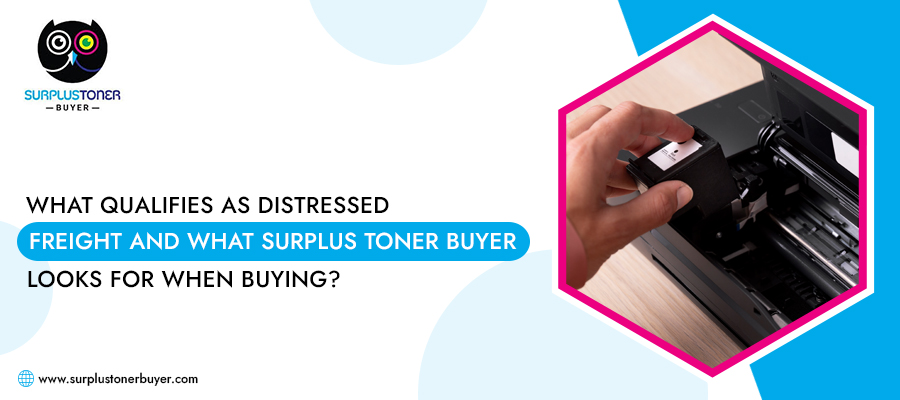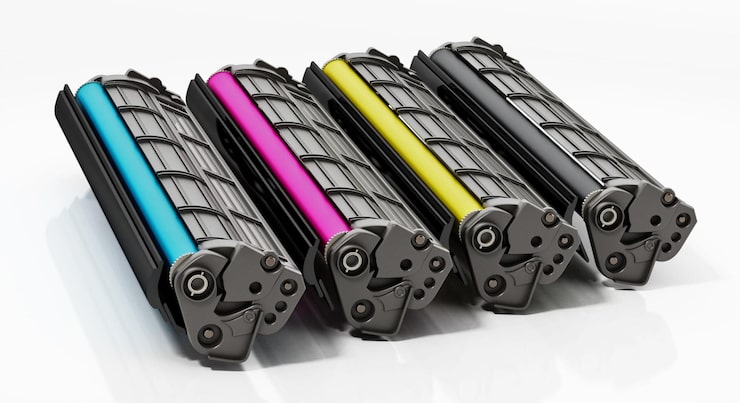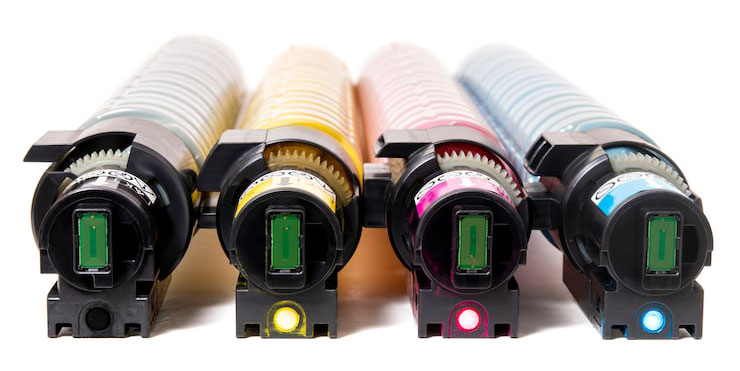
A lot of companies don’t realize they can actually recover money from rejected or extra shipments—especially when it comes to unused printer cartridges and toner. There’s a real market for this kind of stuff, and if you understand what surplus toner buyer looks for, you can turn that “dead stock” into cash quickly. Let’s go over what counts as distressed freight, why it happens, and what buyers look for when purchasing toner and other unused office supplies.
What Counts as Distressed Freight?
“Distressed freight” might sound dramatic, but it’s really just products that can’t be sold through normal distribution because of logistics—not because anything is wrong with the product itself. Before you start, make sure you have the proper supplies. Having these ready ensures the process goes smoothly:

Here are the most common examples:
1. Customer Refused the Shipment
Maybe the customer changed suppliers, ordered the wrong model, or their payment didn’t go through. The items are perfectly fine—they just can’t be sold to that customer anymore.
2. Packaging Got Damaged
If a box gets dented, torn, or wet during shipping, big retailers won’t accept it. Even if the contents are untouched, the shipment gets rejected.
This happens a lot with toner and unused printer cartridges that are not properly packed—a little box damage can be enough for a retailer to say no, even when the product inside is in perfect shape.
3. Lost or Misdelivered Freight
Sometimes shipments get mislabeled or misrouted. By the time they’re found, the buyer has already reordered or no longer wants them.
4. Overstock and Slow-Moving Inventory
Warehouses fill up fast. When distributors change product lines or new printer models come out, older versions of toner and cartridges often get pushed aside.
5. Business Closures or Liquidations
When a company shuts down, downsizes, or switches printers, they often end up with extra toner and sealed cartridges they’ll never use.
All of these situations create distressed freight—products that are still valuable but can’t be sold the usual way.
Why Distressed Freight Still Has Value?
Just because a shipment was rejected doesn’t mean it’s worthless. In fact, there are buyers who specialize in purchasing this kind of inventory, especially office supplies.
There’s a surprisingly large secondary market for Toner, Ink, Unused printer cartridges, OEM-sealed supplies, Surplus warehouse stock. As long as the products are genuine and sealed, we will buy them.
What Surplus Toner Buyers Look For?
If you’re thinking about selling your distressed or surplus toner, here’s what buyers care about most:
1. Factory-Sealed Condition
This is the number one rule. Buyers want unopened, factory-sealed, genuine OEM products—not remanufactured or refilled ones.
Once a box has been opened, even if it hasn’t been used, the value drops significantly.
2. Clean Packaging
Buyers aren’t as strict as big retailers, but they still want boxes that are in decent shape.
They’ll usually accept small dents or scuffs, but they may turn down anything with torn labels, heavy water damage, or missing factory seals. Even in the secondary market, presentation still matters.
3. Popular and Current Models
There’s a huge market for office supplies outside of big-box retail. Secondary markets include:
- Current printer models
- High-yield cartridges
- Major brands like HP, Canon, Brother, and Xerox
- If big companies are using that printer model, there’s probably a buyer for its cartridges.
4. Reasonable Quantity
You don’t need a full truckload to make a sale, but the more inventory you have, the more your pricing will be.
If you’ve got pallets of unused printer cartridges sitting in storage, there’s a good chance a surplus buyer will take them off your hands in one go.
5. Authenticity
Counterfeit toner and cartridges are a known problem, so buyers will verify authenticity. They’ll check OEM logos, security seals, model numbers, and, in some cases, expiration dates. If your items are genuine and unopened, you can expect quick payment.
Why Buyers Pay for Distressed Freight?
There’s a huge market for office supplies outside of big-box retail. Secondary markets include:
- Exporters and wholesalers
- Liquidators
- Independent office supply stores
- Printer service companies
- Resellers
- Small businesses and end users looking to save money
If a product is sealed and genuine, someone will put it to use. That’s why distressed freight—especially toner and printer cartridges—doesn’t need to sit around collecting dust.
Why Sell Distressed Freight Instead of Trashing It?

Selling distressed freight makes sense for a lot of reasons:
- You get quick cash
- You free up useful space
- You avoid disposal fees
- You reduce waste and help the environment
If you’re holding onto unused printer cartridges that you can’t sell to your regular customers, working with a surplus toner buyer is a smart move. Click here to get started today.
Final Thoughts
Not every shipment reaches its destination. Boxes get damaged. Orders get canceled. Inventory piles up. But that doesn’t mean your products are a total loss.
The world of distressed freight exists for this exact reason. Surplus toner buyer gives perfectly good products a second chance—keeping them out of landfills and putting money back in your pocket.
So before you throw out those extra printer cartridges or write off unsold toner as a loss, remember this: There’s a real market for them. And someone out there is ready to buy.
